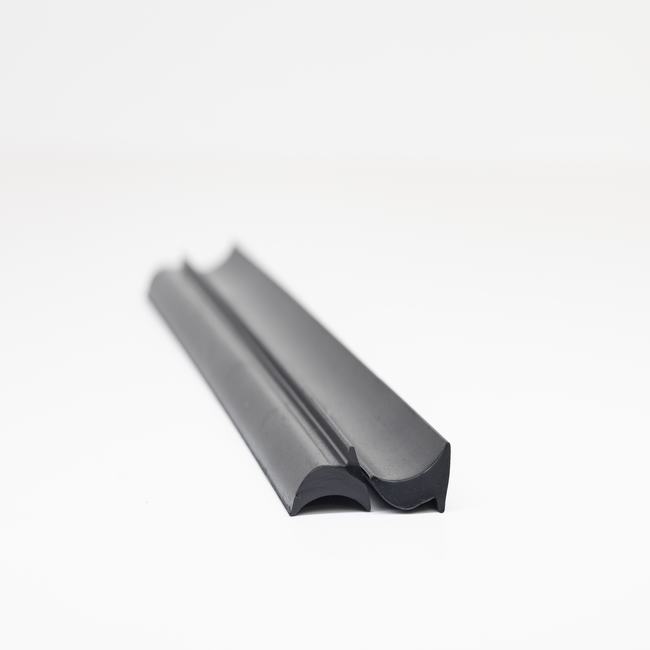Industrial seals are critical components used in a wide range of industrial applications to prevent the leakage of fluids or gases and to protect machinery and equipment from environmental contaminants. These seals are designed to create a barrier between two adjacent surfaces, ensuring a tight, leak-free connection. In this extensive description, we will explore the various types of industrial seals, their materials, applications, functions, installation methods, and the importance of proper maintenance.
1. Types of Industrial Seals:
Industrial seals come in various types, each designed to meet specific requirements. Some common types include:
- Gaskets: Gaskets are flat seals that are placed between two mating surfaces, such as flanges or pipes. They are typically made from materials like rubber, metal, or composite materials and are used to prevent leaks in pipelines, engines, and various machinery.
- O-Rings: O-rings are circular seals made from elastomeric materials like rubber or silicone. They are used in a variety of applications, including hydraulic systems, automotive engines, and plumbing, to create a secure, leak-free seal.
- Rotary Seals: These seals are used in rotary equipment, such as shafts and bearings, to prevent the escape of fluids or contaminants. They come in various designs, including oil seals, lip seals, and mechanical seals.
- Hydraulic Seals: Hydraulic seals are specially designed for hydraulic systems to prevent the leakage of hydraulic fluid. They include piston seals, rod seals, wipers, and wear rings.
- Pneumatic Seals: Pneumatic seals are used in pneumatic systems to prevent the loss of compressed air. They include piston seals, rod seals, and cushioning seals.
- Lip Seals: Lip seals, also known as oil seals, are commonly used in automotive applications to prevent the leakage of lubricating oil.
- Static Seals: Static seals are used in applications where there is no relative motion between components, such as flange gaskets and valve seals.
- Dynamic Seals: Dynamic seals are used in applications with relative motion between components, such as piston and rod seals in hydraulic cylinders.
2. Materials:
Industrial seals are manufactured from a wide range of materials, chosen based on the specific application and the environmental conditions. Common materials include:
- Rubber: Nitrile, silicone, EPDM, and Viton are common rubber materials used for seals. They offer flexibility, resilience, and resistance to various fluids.
- Metal: Metal seals are often used in high-temperature and high-pressure applications, where they provide excellent sealing capabilities.
- Polymer: Materials like PTFE (Teflon) and UHMW (Ultra-High Molecular Weight Polyethylene) offer exceptional chemical resistance and low friction properties.
- Composite: Composite materials combine the strengths of different materials to create seals with specific properties tailored to the application.
3. Functions of Industrial Seals:
Industrial seals serve several crucial functions in various industrial settings:
- Leak Prevention: The primary function of industrial seals is to prevent the unwanted escape of fluids or gases, ensuring that the system remains efficient and safe.
- Environmental Protection: Seals protect machinery and equipment from environmental contaminants, such as dust, dirt, and moisture, which can lead to premature wear and damage.
- Friction Reduction: In applications with moving parts, seals can reduce friction and wear, prolonging the life of equipment.
- Energy Efficiency: By preventing leaks in hydraulic or pneumatic systems, industrial seals contribute to energy efficiency and cost savings.
- Safety: Seals help maintain the safety of industrial processes by preventing leaks of hazardous or toxic substances.
4. Installation:
Proper installation is essential to ensure the effectiveness of industrial seals. The process may vary depending on the type of seal and the specific application. However, some general installation steps include:
- Cleaning and preparing the sealing surfaces to remove any contaminants or irregularities.
- Lubricating the seal with a compatible lubricant, if necessary, to ease installation and reduce friction.
- Ensuring that the seal is correctly positioned and compressed to create a tight seal without overcompression, which can lead to damage.
- Torquing fasteners or bolts to the specified level to ensure even pressure on the seal.
5. Maintenance:
Regular maintenance is crucial for the long-term performance of industrial seals. Maintenance tasks may include:
- Inspecting seals for wear, damage, or deformation.
- Replacing seals that are worn or damaged.
- Lubricating seals as recommended by the manufacturer to maintain their flexibility and sealing effectiveness.
6. Applications:
Industrial seals are used in a multitude of industrial applications, including but not limited to:
- Oil and gas industry: Seals are used in pipelines, valves, and pumps to prevent leakage of hydrocarbons.
- Automotive industry: Seals are used in engines, transmissions, and brake systems to prevent fluid leaks and contamination.
- Manufacturing: Seals are employed in machinery, hydraulic systems, and pneumatic equipment.
- Aerospace: Seals are crucial for maintaining the integrity of aircraft systems and engines.
- Pharmaceutical and food processing: Seals ensure the hygienic and sterile operation of equipment in these industries.
- Water and wastewater treatment: Seals are used in pumps, valves, and pipelines to prevent leaks and contamination.
In summary, industrial seals are fundamental components in a wide range of industrial applications, providing critical functions in preventing leaks, protecting equipment, and ensuring the efficiency and safety of various processes. The choice of seal type and material depends on the specific application and environmental conditions, and proper installation and maintenance are key to their effectiveness and longevity. Industrial seals play a pivotal role in modern industry by ensuring the reliability and performance of countless systems and processes.

